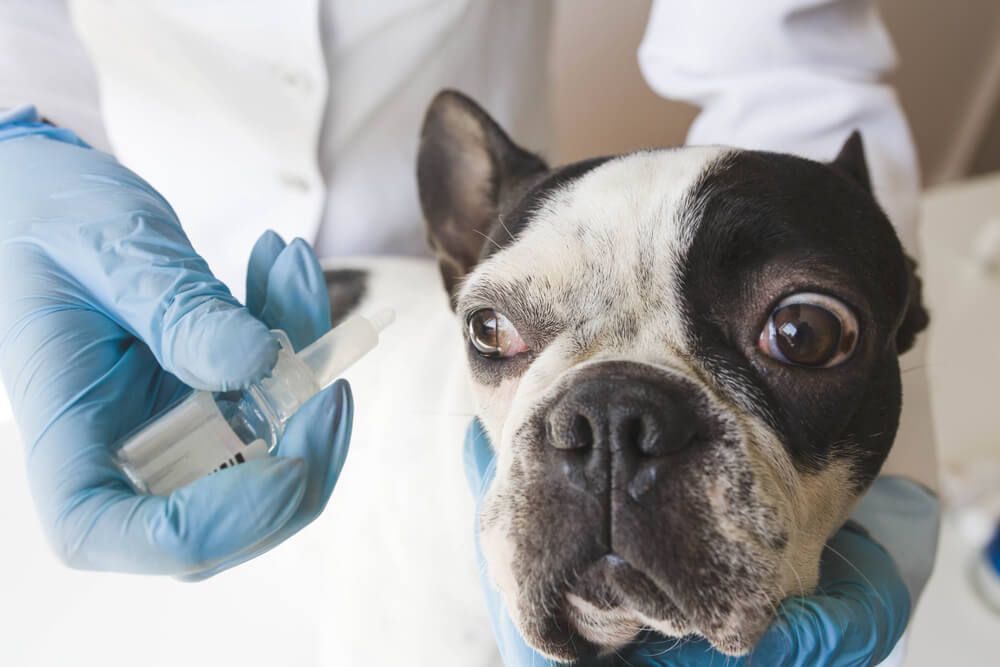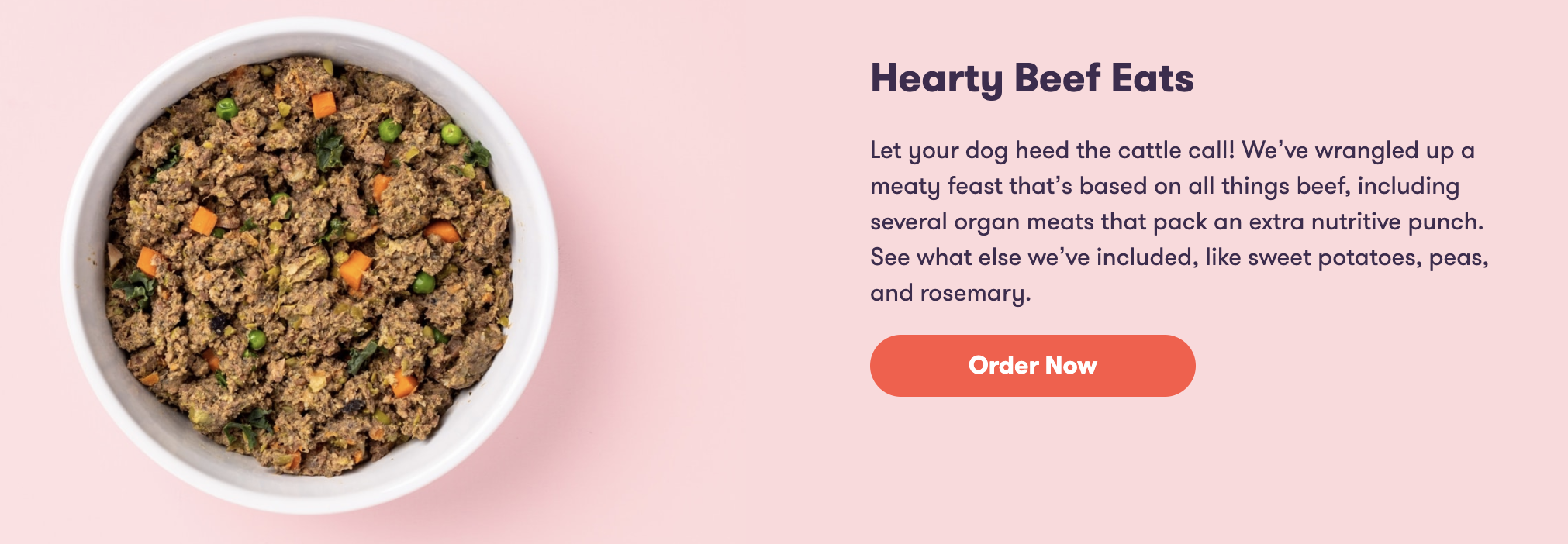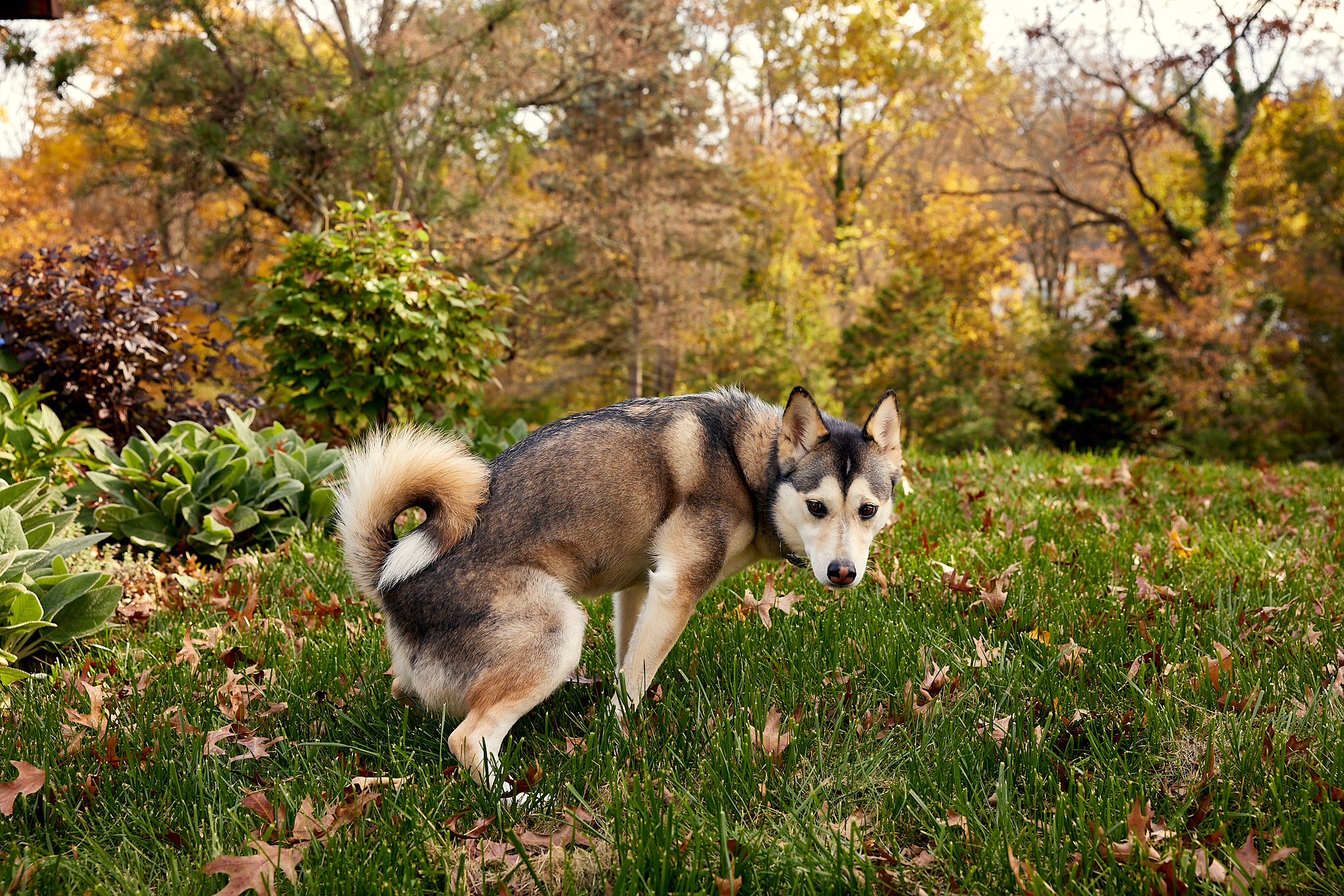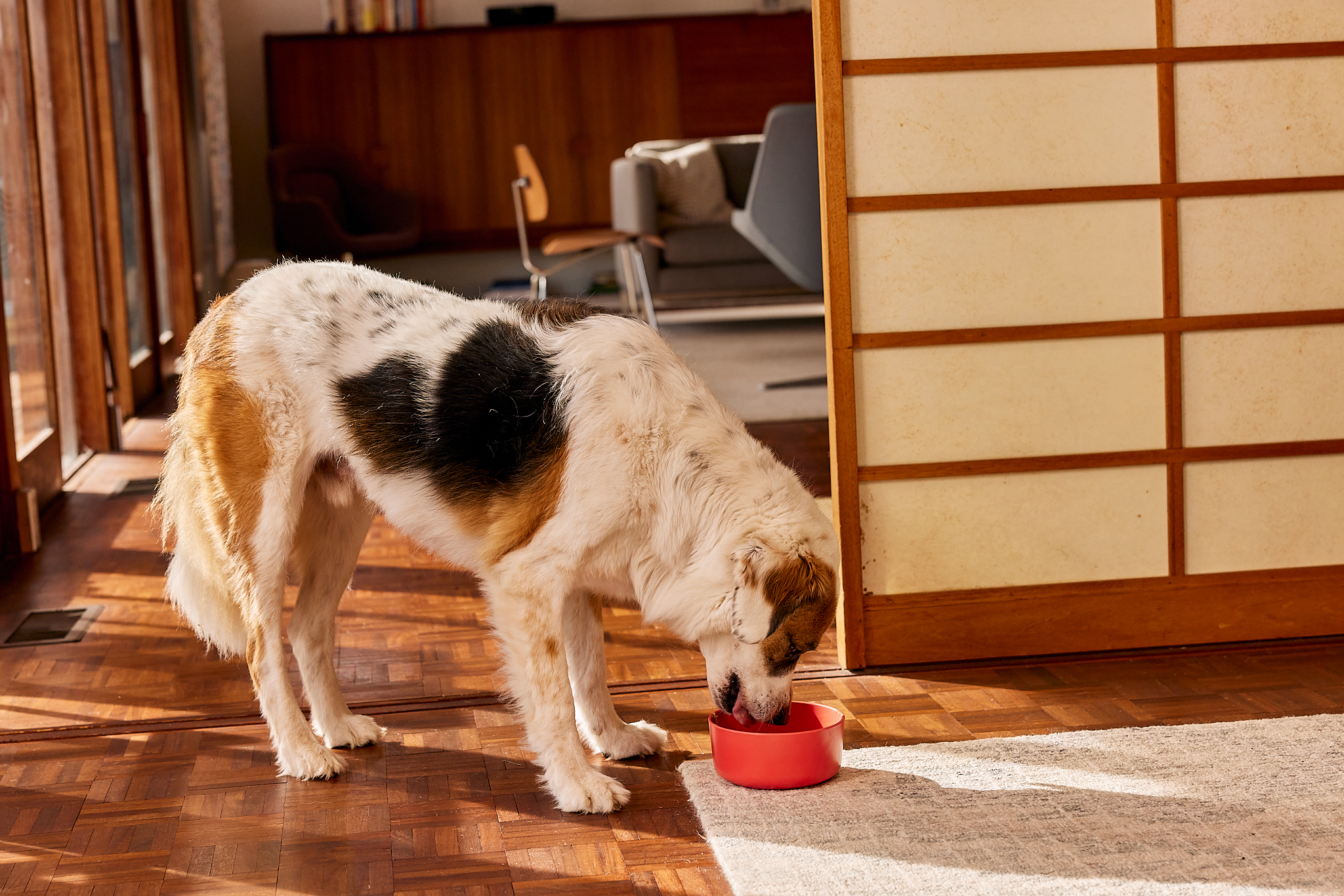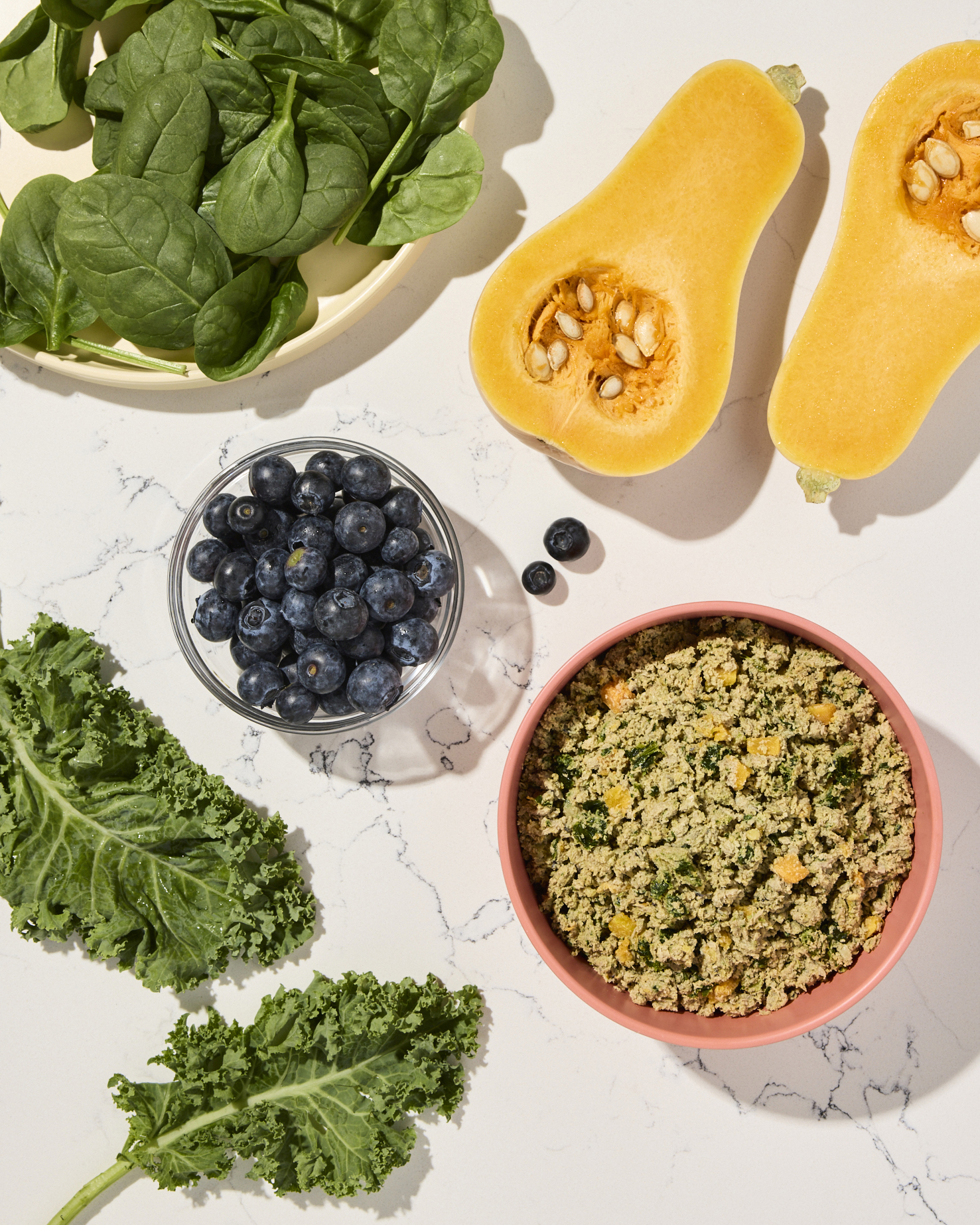Hey Ollie blog readers! We’re offering you an exclusive 60% OFF your starter box! Try now!
Red crusty eyes. Not something you look forward to seeing on anyone, even your dog. While these symptoms are definitely annoying you might be wondering how serious they are. If your pup has pink eye, here is everything you need to know.
What is pink eye or conjunctivitis?
According to Pet MD: Conjunctivitis in dogs is an inflammation of the conjunctiva, the moist tissue that covers the front part of the eyeball and lines the eyelids.
Breeds that tend to have allergies or autoimmune skin diseases tend to have more problems with inflammation of the conjunctiva. Brachycephalic or short-nosed breeds like pugs or boxers are also at much higher risk for developing conjunctivitis.

Symptoms of pink eye in dogs
If you think your dog might have pink eye, you will want to look for these symptoms. Since your pup can’t tell you that their eyes itch you will have to rely on what you are seeing. Some forms of pink eye are highly contagious so if you see any of these symptoms in your pet, isolate them from other dogs (even other dogs that live in your home) and call your vet right away.
- Red eyes
- Puffy eyelids
- Watering eyes
- Pawing at or scratching at eyes
- Stringy discharge
- Eyelids sticking together
3 Types of conjunctivitis in dogs (and their causes)
There are three main types of conjunctivitis and they all have different causes and respond to different treatments.
1. Allergic Conjunctivitis
This type of conjunctivitis is often seasonal or triggered by an allergic reaction to mold, perfume or some other type of irritant. It is NOT contagious. However, it is uncomfortable for your dog. You will want to treat your pup’s symptoms and try to figure out what is causing it. If possible eliminate or reduce exposure to the allergen.
2. Bacterial Conjunctivitis
This type of conjunctivitis is caused by either streptococcus (strep) or staphylococcus (staph infection). It is highly contagious. If you suspect your pup has pink eye, it is important to rule out one of these bacterial infections so you don’t spread bacteria to other pups.
3. Viral Conjunctivitis
As the name implies this type is caused by a virus. Additional symptoms include an upper respiratory infection and a cold or sore throat. This type can take up to three weeks for your pup to get better. It is highly contagious. If your pup is diagnosed with this type of conjunctivitis keep them away from other dogs especially in high traffic areas like dog parks and doggie daycares.
How is pink eye treated in dogs
If you suspect that your dog has pink eye, you’ll want to get them to the vet ASAP. The first thing the vet will do is rule out any other eye issues like a scratch, ulcer, or foreign material that could be stuck in your pup’s eye. The doctor will also want to rule out allergies, glaucoma, cancer as well as any other underlying issue that could cause inflammation or redness in your pup’s eye.
While this can sound scary and a little nerve-wracking, it is always better to be safe than sorry when it comes to your pup’s eyes. Some of these more serious conditions are very treatable if caught early. A lack of treatment could result in the loss of the eye.
Once the vet is done ruling out more serious conditions, they will try to determine the cause of your pup’s pink eye. If it is bacterial your vet will give you an ointment or drops to put in your pup’s eye. For viral conjunctivitis, your vet might recommend cold compress, artificial tears or a steroid. Follow the vet’s instructions for how to administer the medications. You may need to clean any discharge from your dog’s eyes before you give them their medicine.
If your pup’s conjunctivitis is secondary to another issue like growth or a tumor, simply treating conjunctivitis will not be enough to resolve your pup’s issue. You will need to treat the primary cause or it could increase in severity or conjunctivitis could return. If your pup is seeing the doctor for frequent bouts of conjunctivitis, you may want to ask your vet to run some additional tests to see if there may be another cause.
Having your fingers or a dropper in your dog’s eye may not be the best bonding experience. Since this could be a little upsetting for your pup consider doling out some delicious treats when you’re done with the medication. You might even want to offer something really high value like cheese or low-fat lunch meat. If you can figure out a way to let your dog lick some peanut butter or their favorite flavor of Ollie off of a spatula while you work, you might be able to distract them from the discomfort a bit. Your goal is to keep your pup’s stress down while you’re providing this treatment.
The Ollie blog is devoted to helping pet parents lead healthier lives with their pups. If you want to learn more about our fresh, human-grade food, check out MyOllie.com.
Tagged As:

The nutrition your dog needs,
the food they want.

Enjoying our articles? Subscribe our Newsletters and get new articles directly to your inbox
You might also like
3 July 2025
5 MINS READ
How Fresh Food Can Help Your Dog Have Perfect Poops
As a pup parent, you’re likely very familiar with your dog’s bathroom habits. While it may not be the most glamorous part of taking care of your pup, a dog’s stool can be one of the most dir…
by Ollie Pets
4 June 2025
5 MINS READ
How Can Fresh Dog Food Help with Weight Management?
Maintaining a healthy weight is one of the most important aspects of your dog’s overall health and longevity. Being overweight or underweight can result in health complications and conditions that…
23 May 2025
5 MINS READ
Why Fresh Dog Food Makes Happier, Healthier Dogs That Live Longer
Every pup parent wants their dog to live a long, happy life, and the path to a healthier, happier dog starts with what’s in their bowl. Recent research and expert insights reveal that fresh dog …
by Ollie Pets
